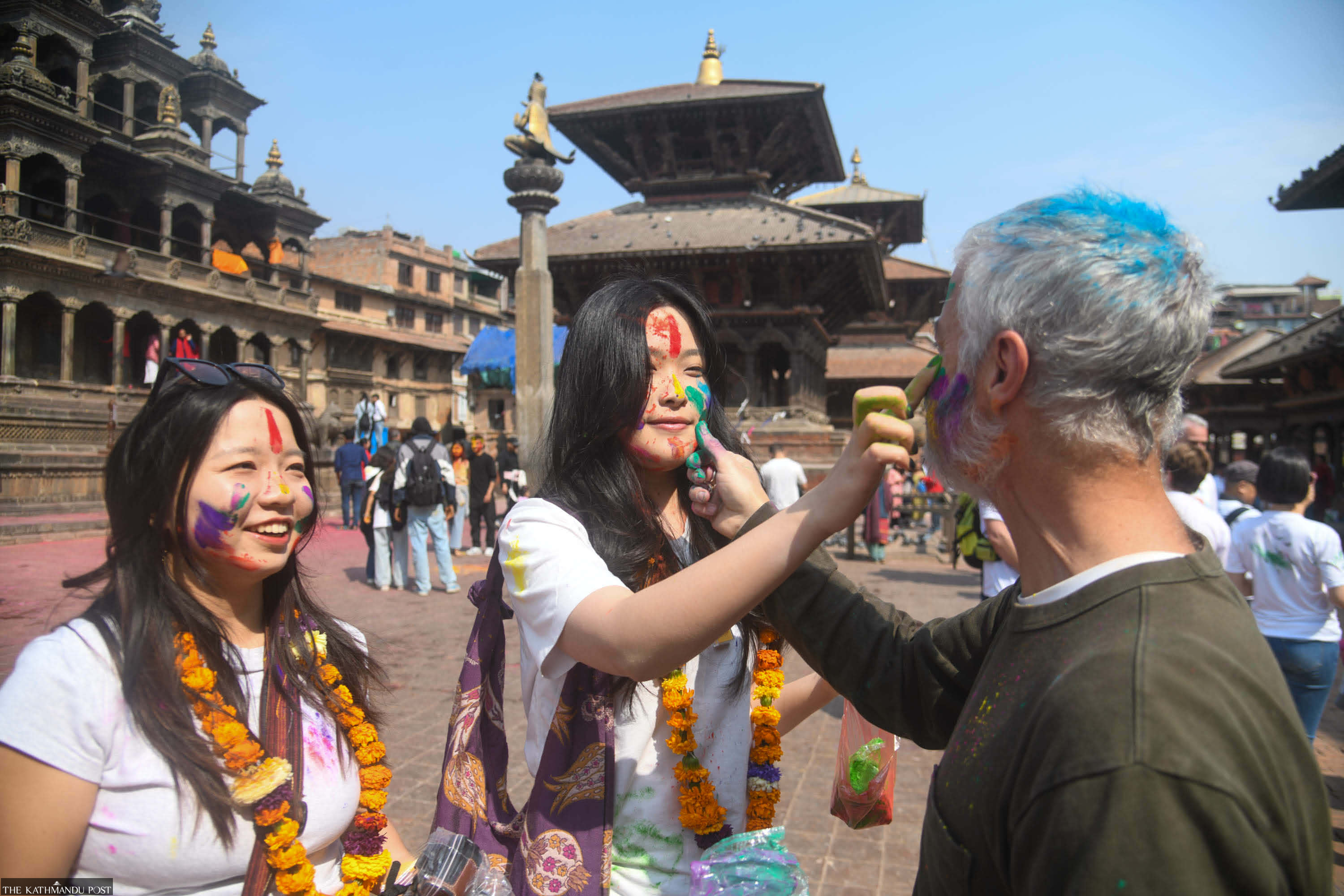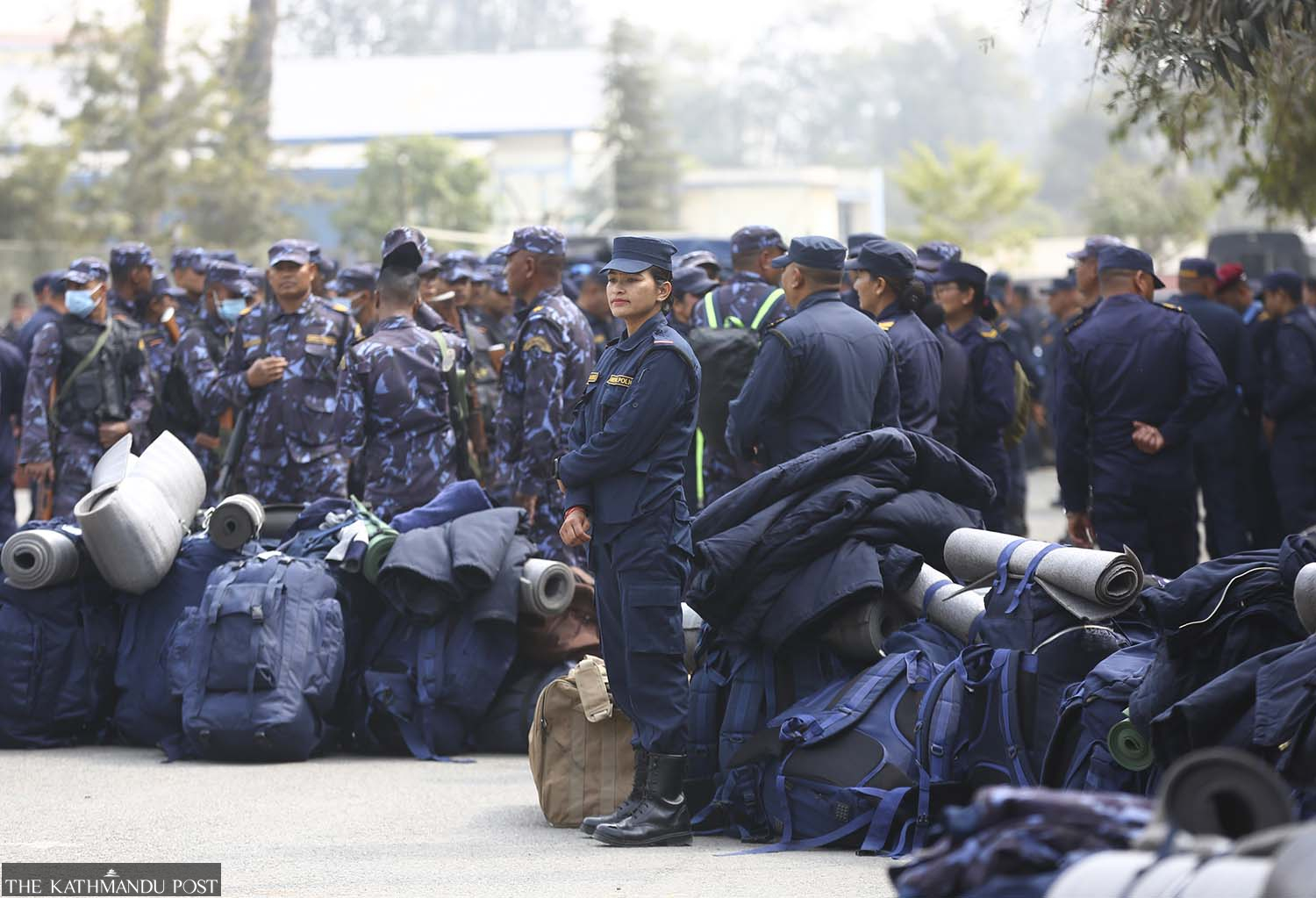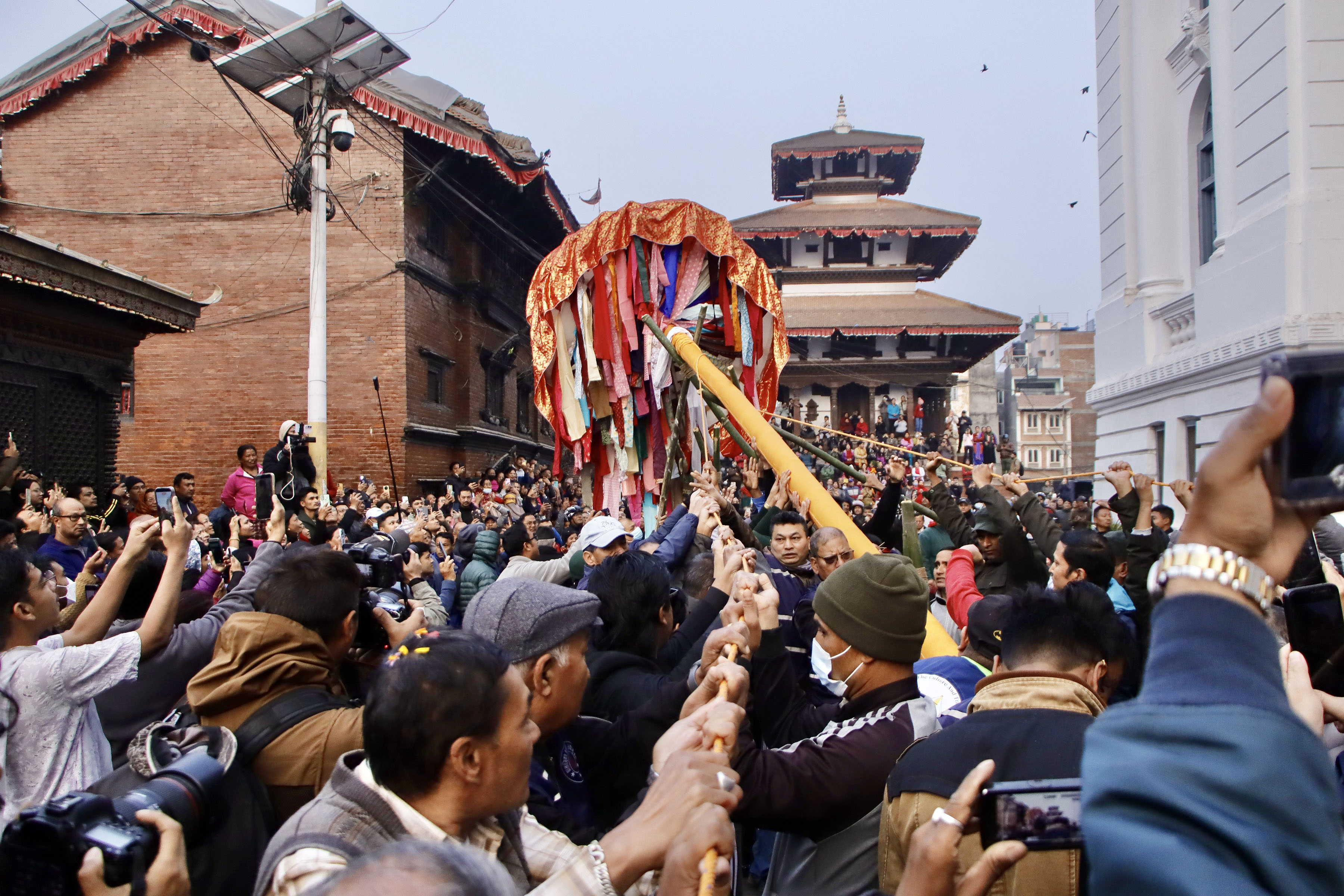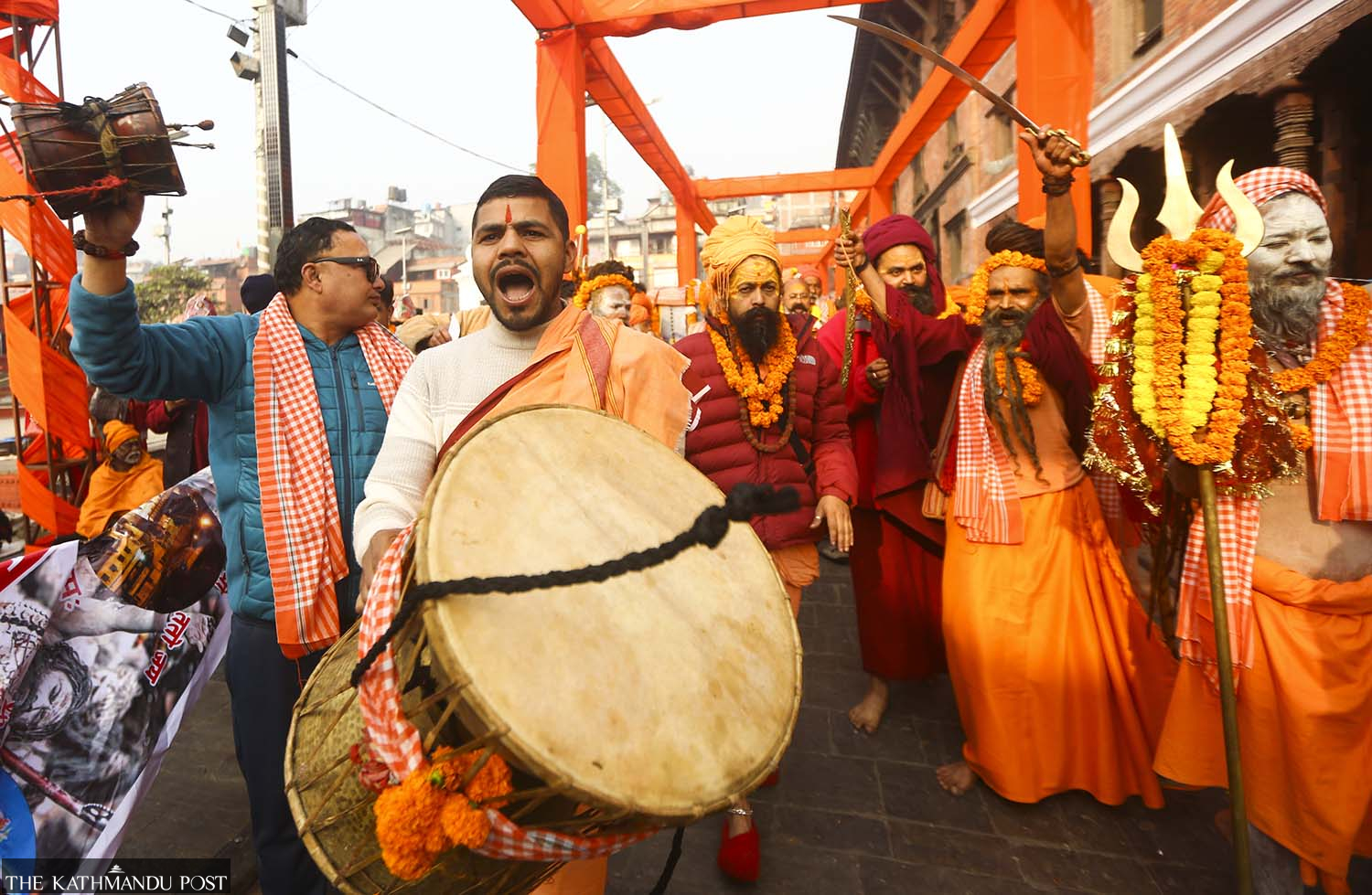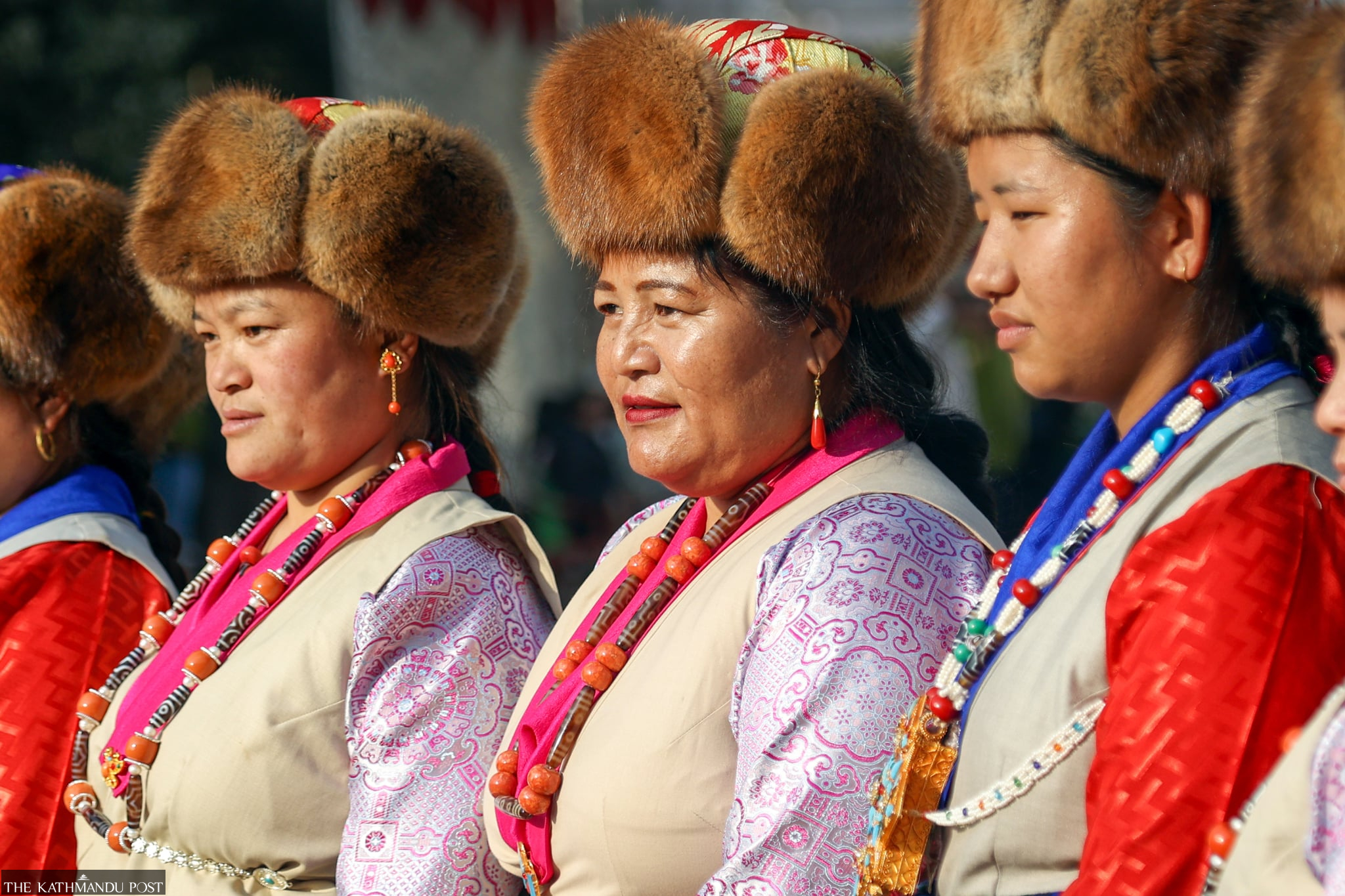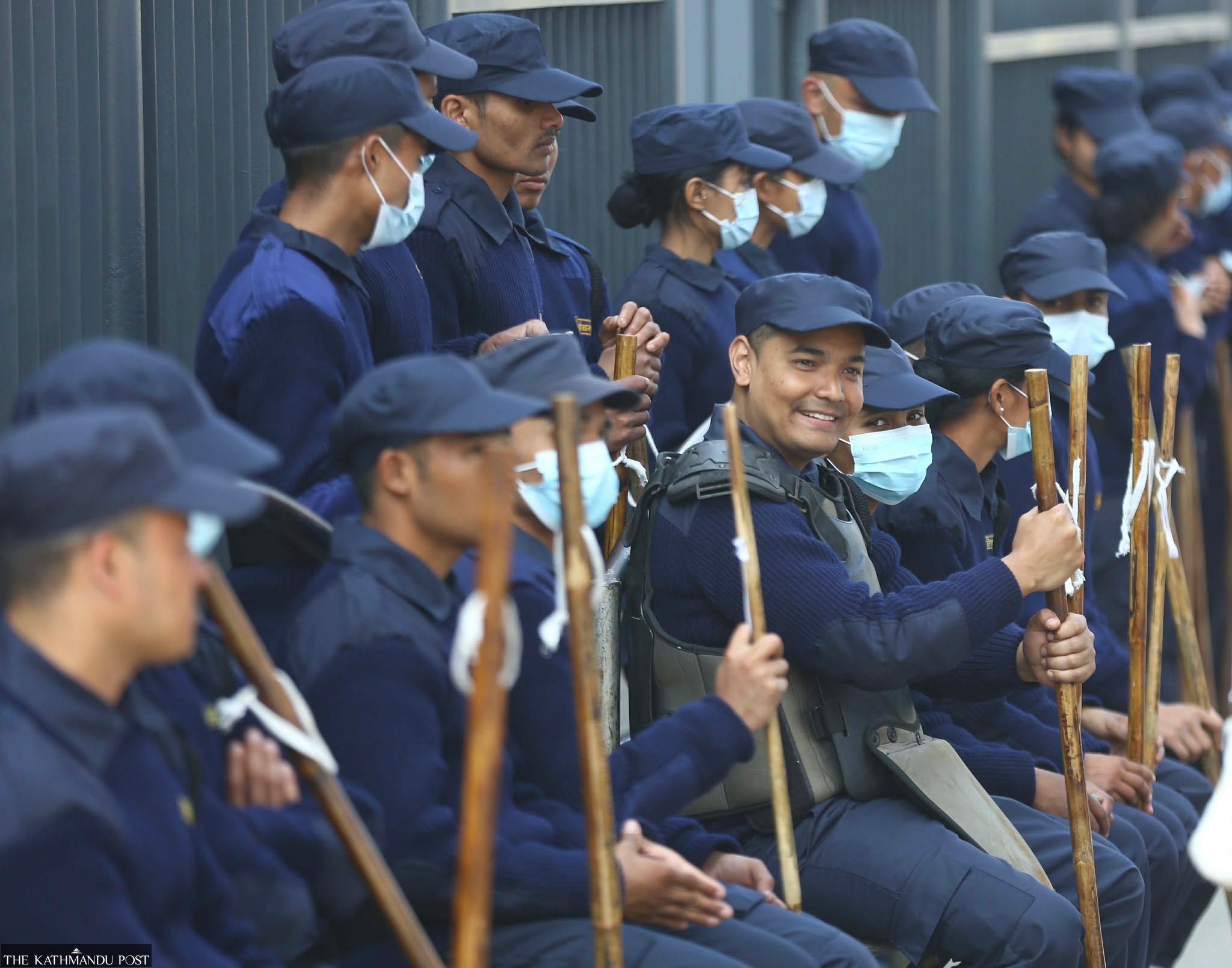Visual Stories
Chhath festival amid Covid-19 pandemic
The popular Chhath ghats saw fewer devotees this year as many opted to observe the festival from their homes.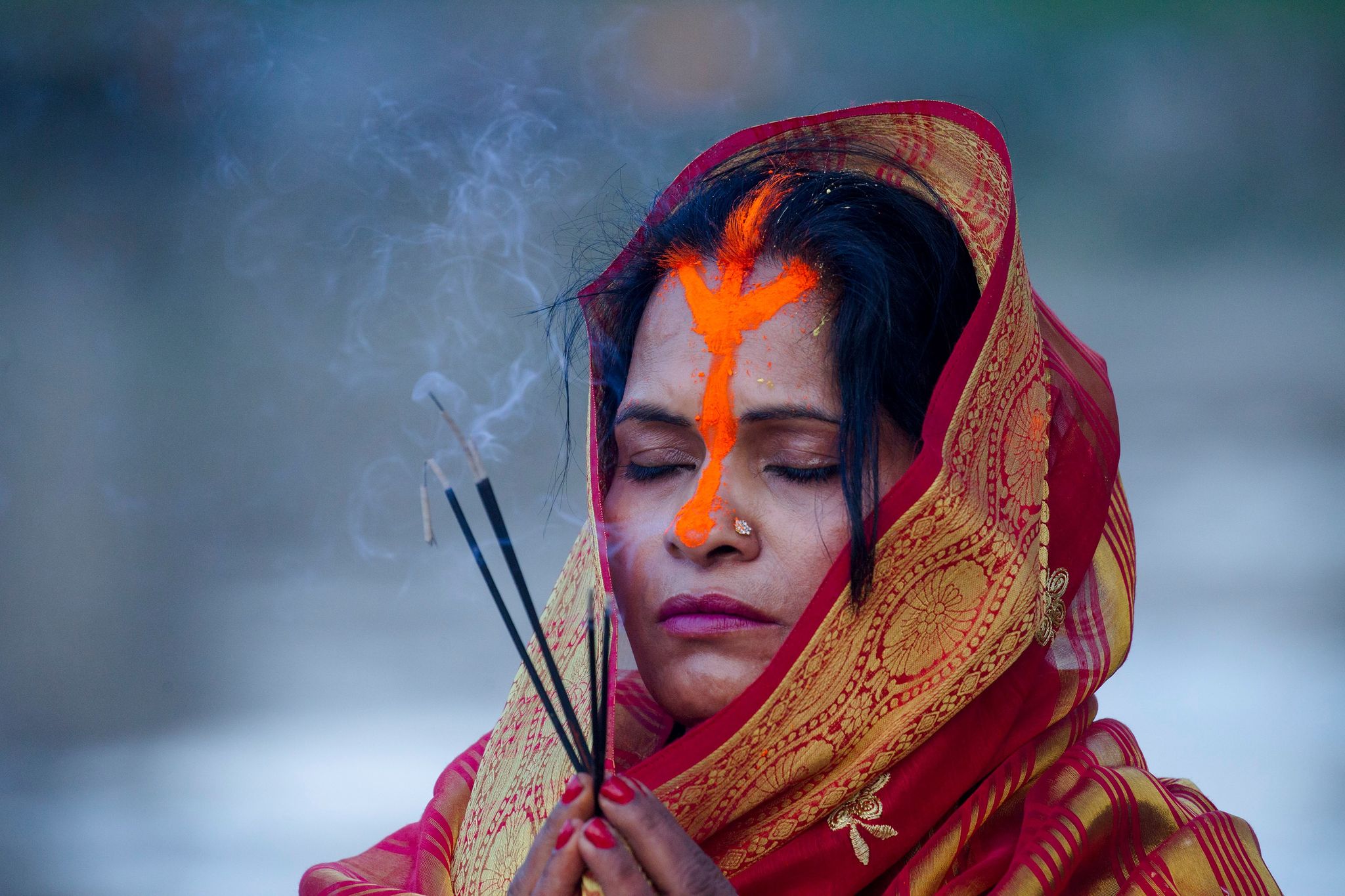
Post Report
Chhath, a festival dedicated to the Sun god, is being celebrated across the Tarai region and some hilly districts across the country.
On Friday, the devotees offered prayers to the setting sun from their homes or a nearby pond or a river which usually have ghats decorated for the festival. However, the number of people visiting the puja venues was less compared to previous years as many opted to perform the rituals at their homes amid the Covid-19 pandemic.
"People used to come in droves to celebrate the festival at Tejarath Tole Chhath Ghat every year," said Bidur Gautam, a local of Tejarath Tole in Birgunj, Parsa. "But this year, neither the Chhath Ghat was decorated nor any devotee visited."
"I used to observe the festival from a nearby Chhath Ghat, but this year I decided to observe it from home because of the Covid-19 situation,'' said Pratima Devi Rajput, 45, of Kumhal Tole in Birgunj Metropolitan City Ward 5.
The popular ghats also saw fewer visitors.
“In comparison to previous year, the Chhath ghat at Ghadiarwa Pokhari, which is considered one of the most crowded venues during the festival in Birgunj, saw only 25 percent of the crowd,” said Prem Shah Kanu, chairman of the Chhath Puja Management Committee at the Gadiarwa pond.
The Hindu festival dedicated to the Sun god and his spouse Usha is observed for four days for the well-being and prosperity of the family. The rituals of Chhath festival include fasting—even abstaining from drinking water—offering prayers to the setting and rising sun, along with arghya and prasad. The prasad prepared for this auspicious occasion includes fruits and rice pudding.
Primarily celebrated by the people from the Tarai region, the festival these days also attracts devotees from the hills.
The festival begins with the ‘Nahay-Khay’ and ‘Kharna’ rituals and devotees offer arghya on the third day. Devotees observe a day-long fast completely abstaining from food and water. In the evening, they go to a pond or riverbank, take a dip and worship the setting Sun. People sing folk songs dedicated to goddess Chhathi Maiya as devotees take a holy dip.
On the concluding day, devotees wake up before sunrise and head to the same water body—this time to worship the rising Sun.
Here are some photos of devotees offering prayers to the setting Sun on Friday in Parsa, Kapilvastu, Sindhuli and Kathmandu.
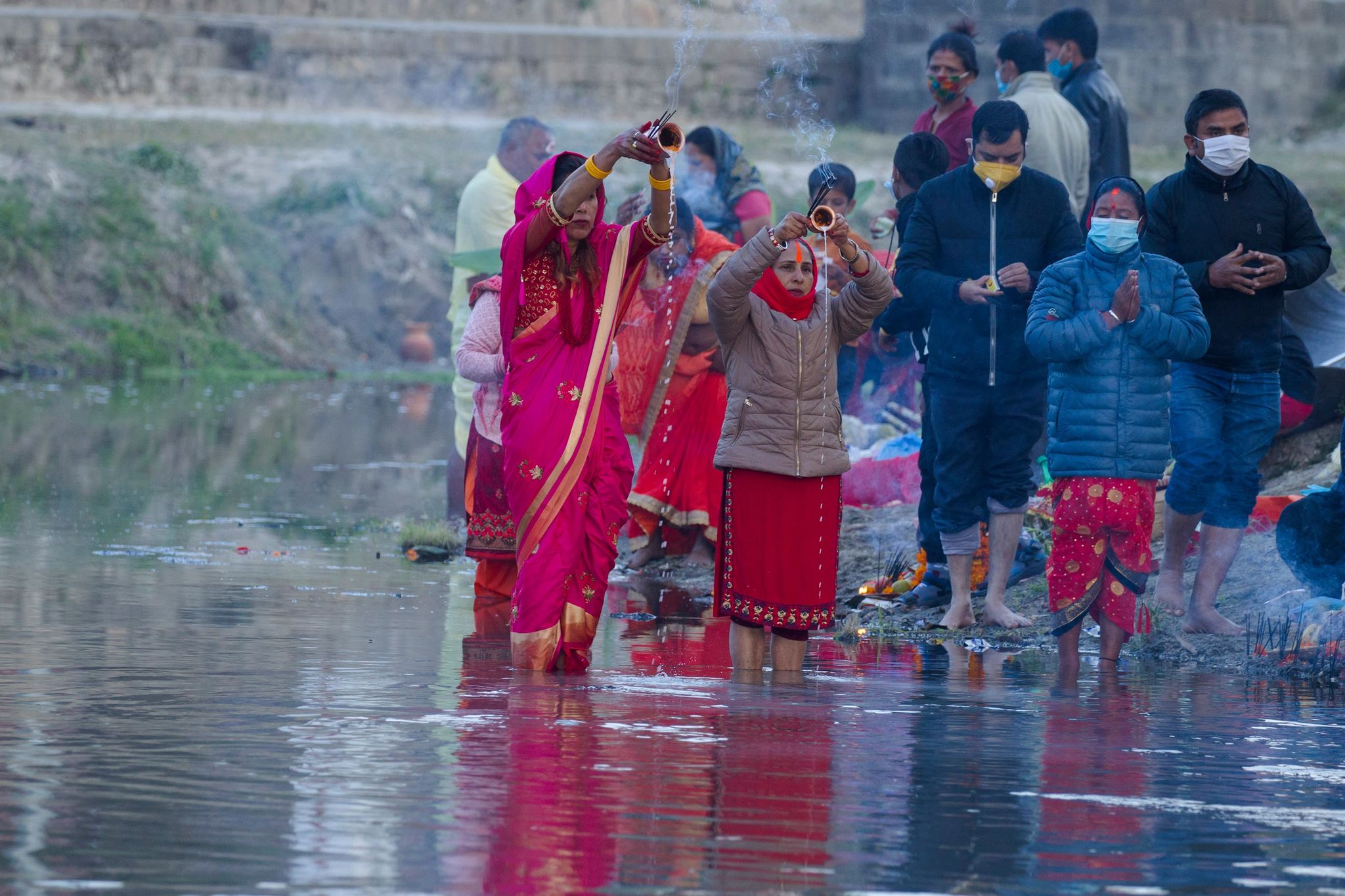
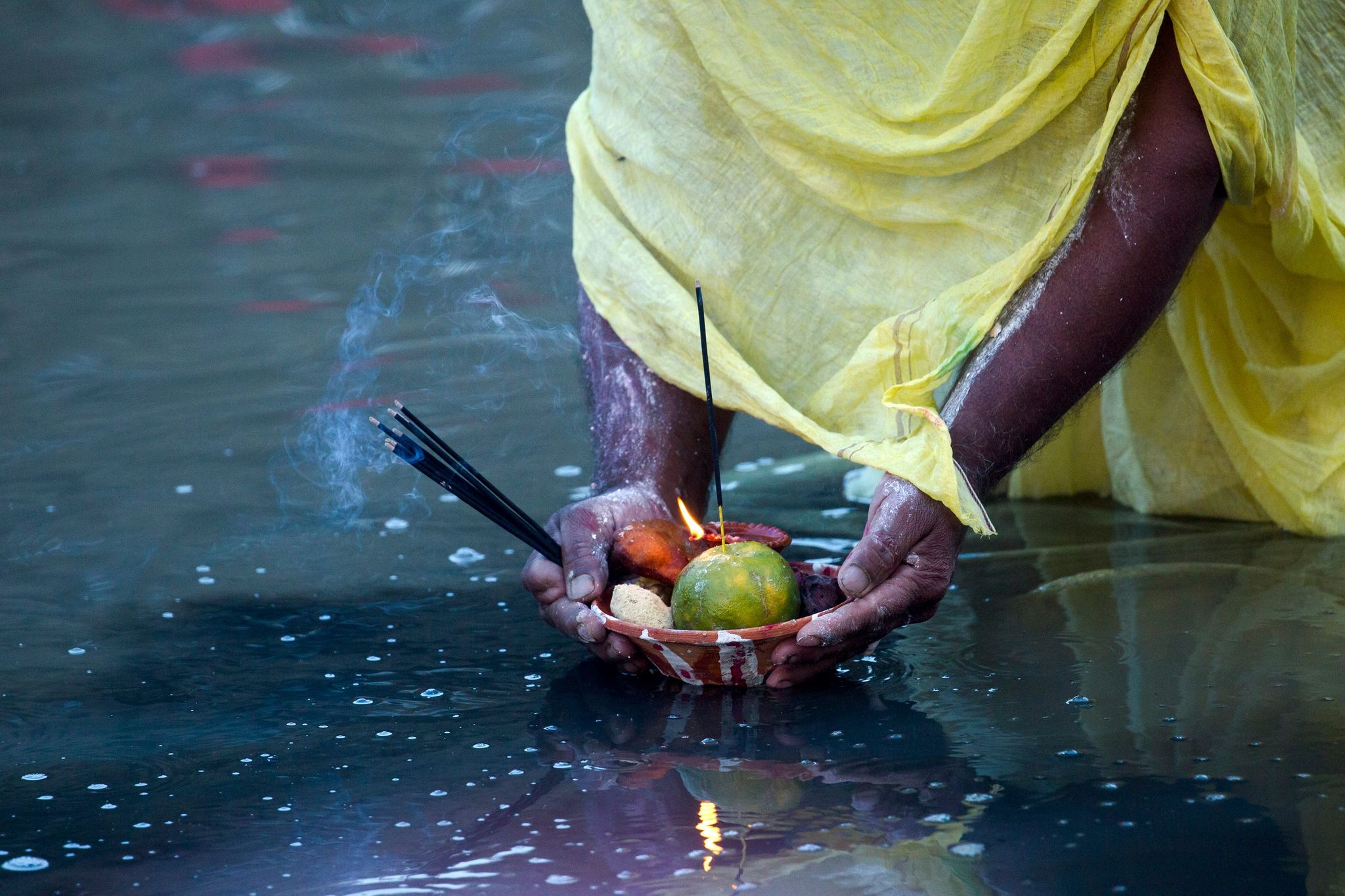
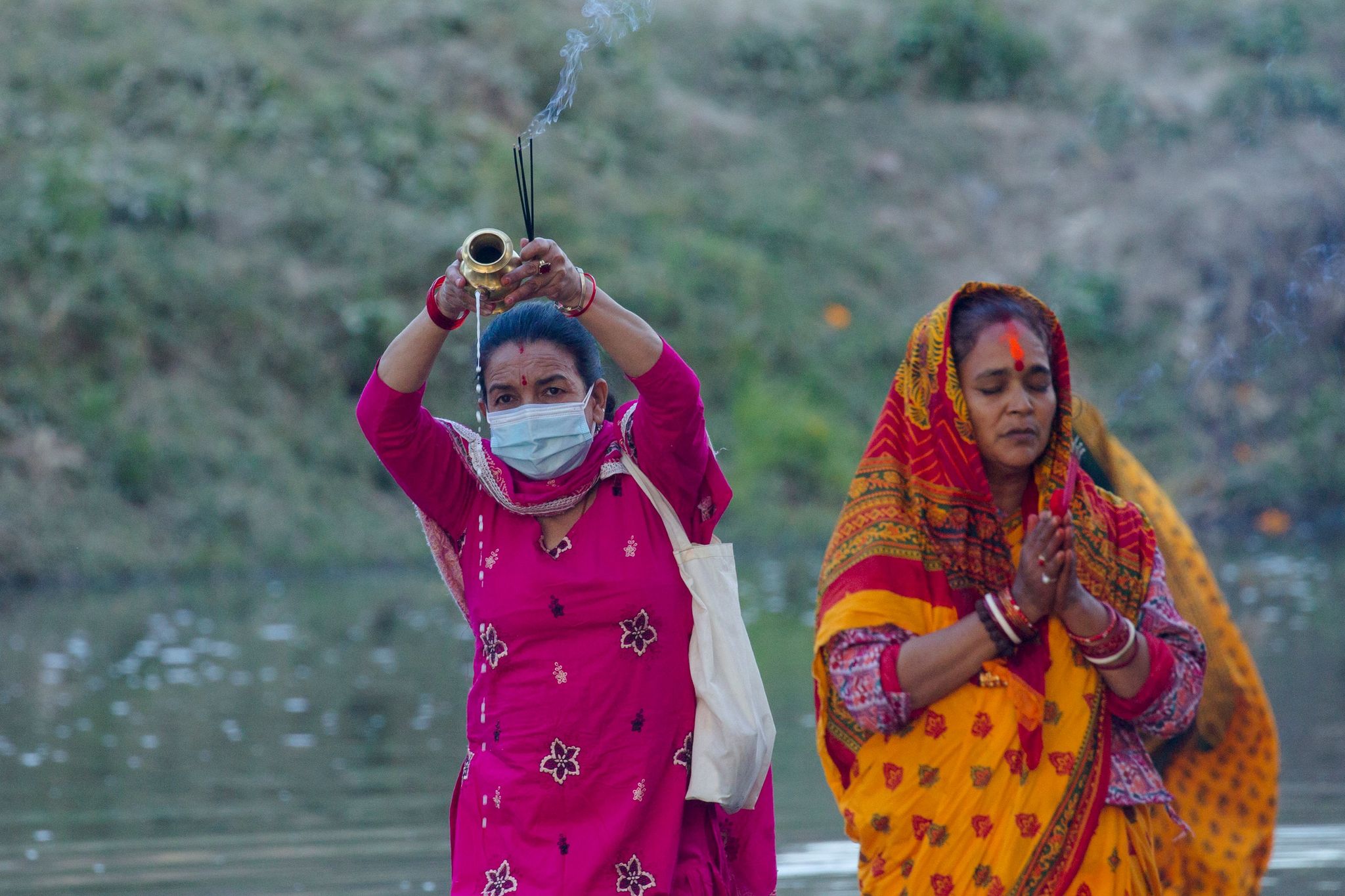
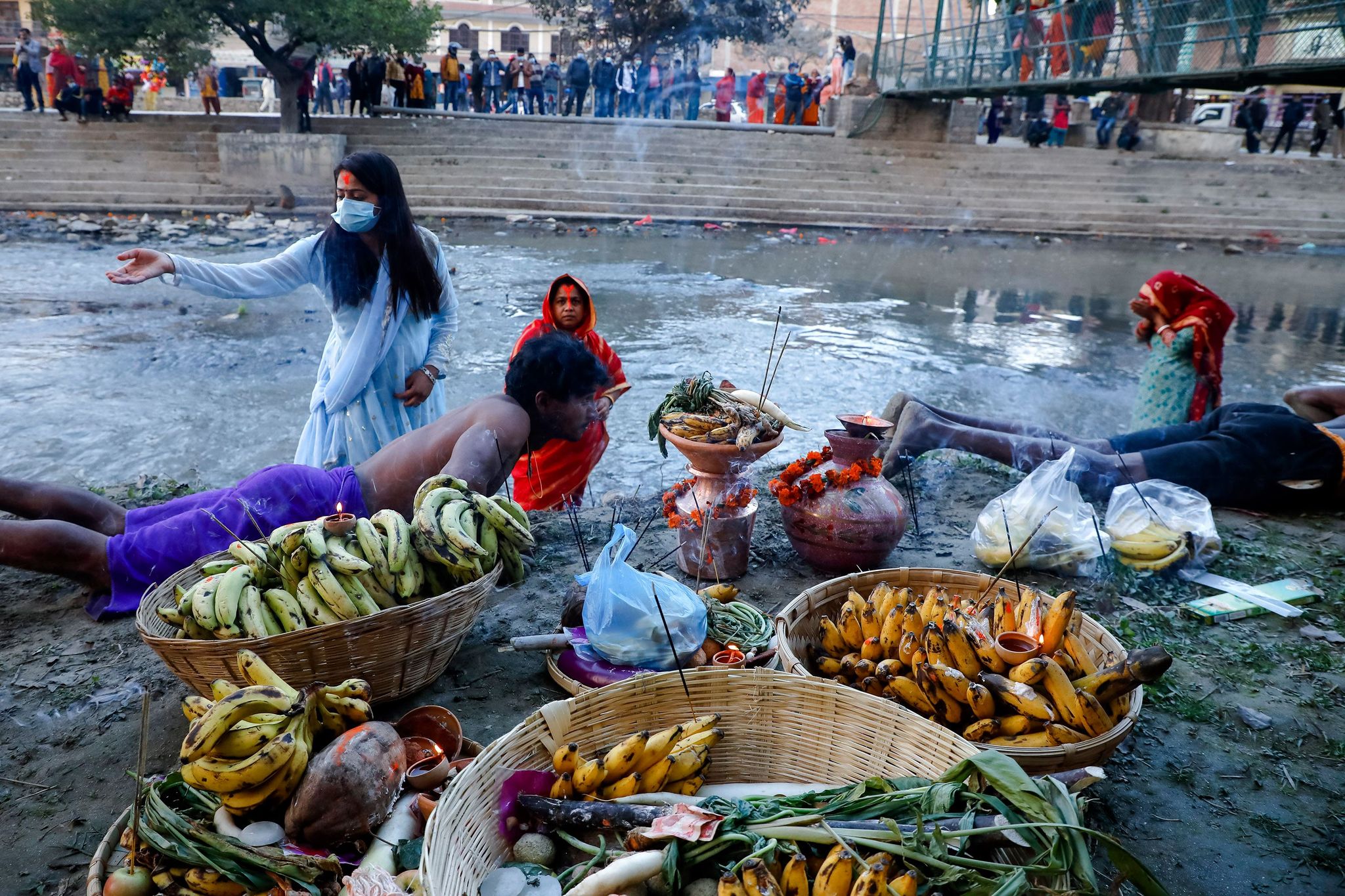
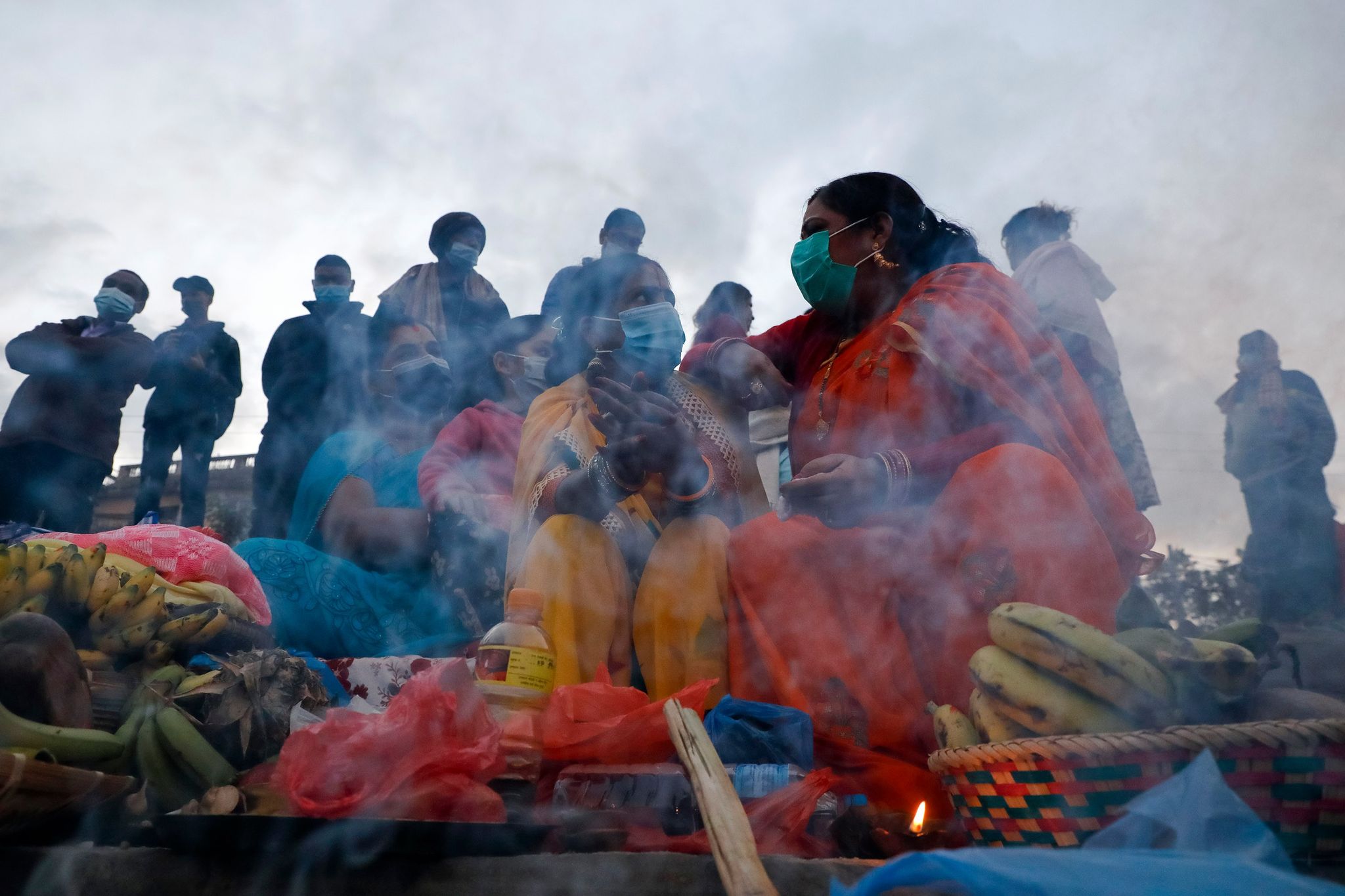
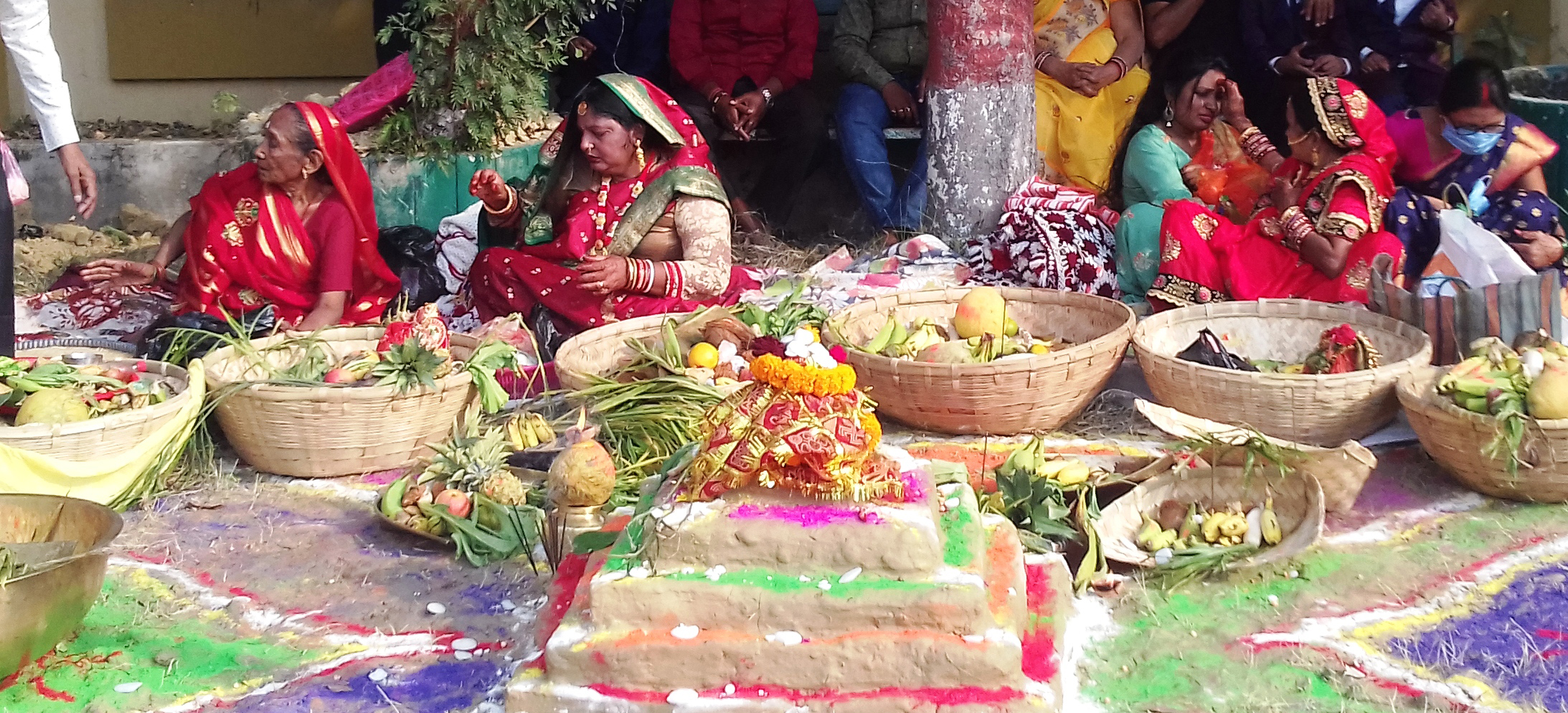
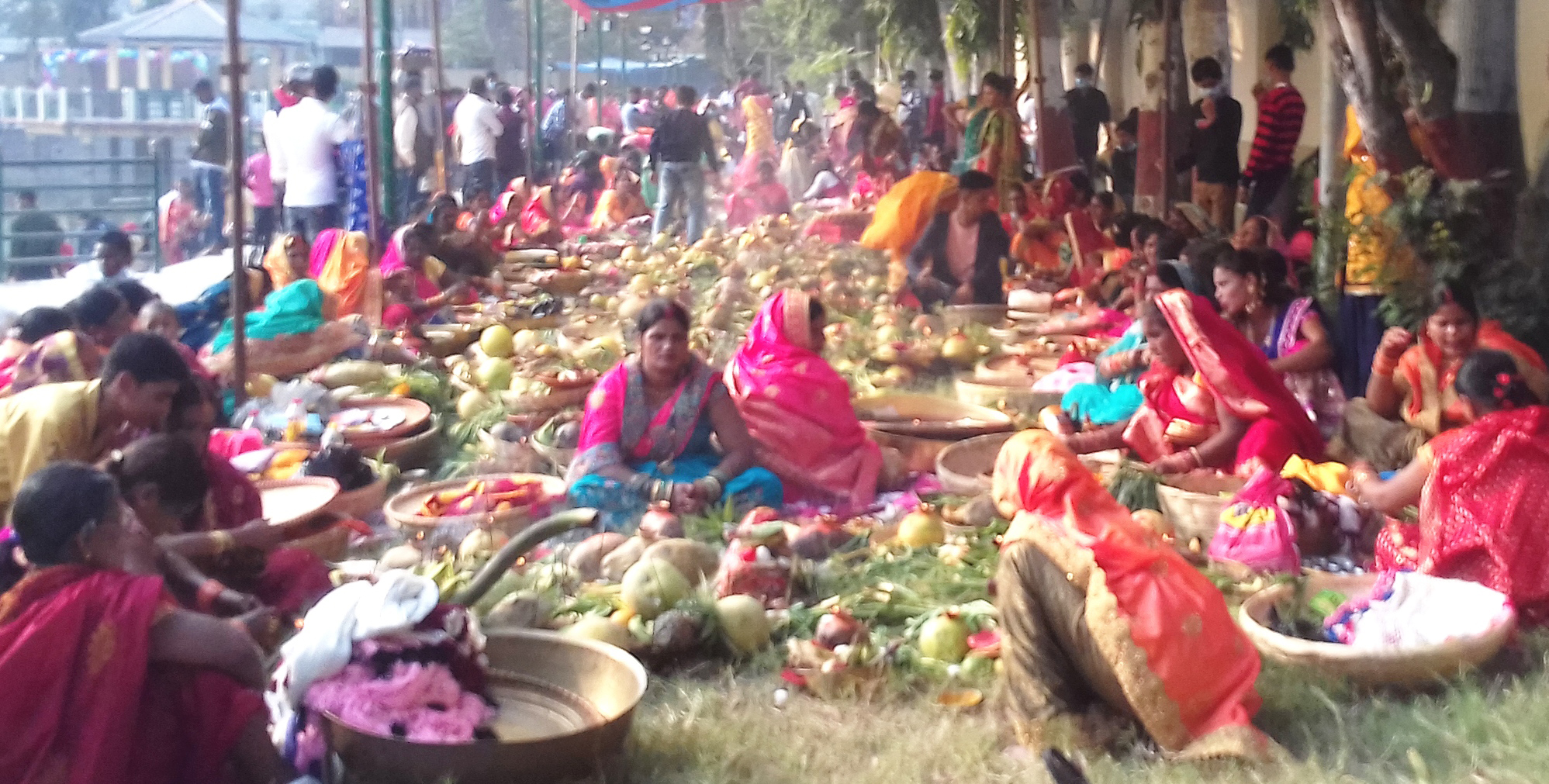
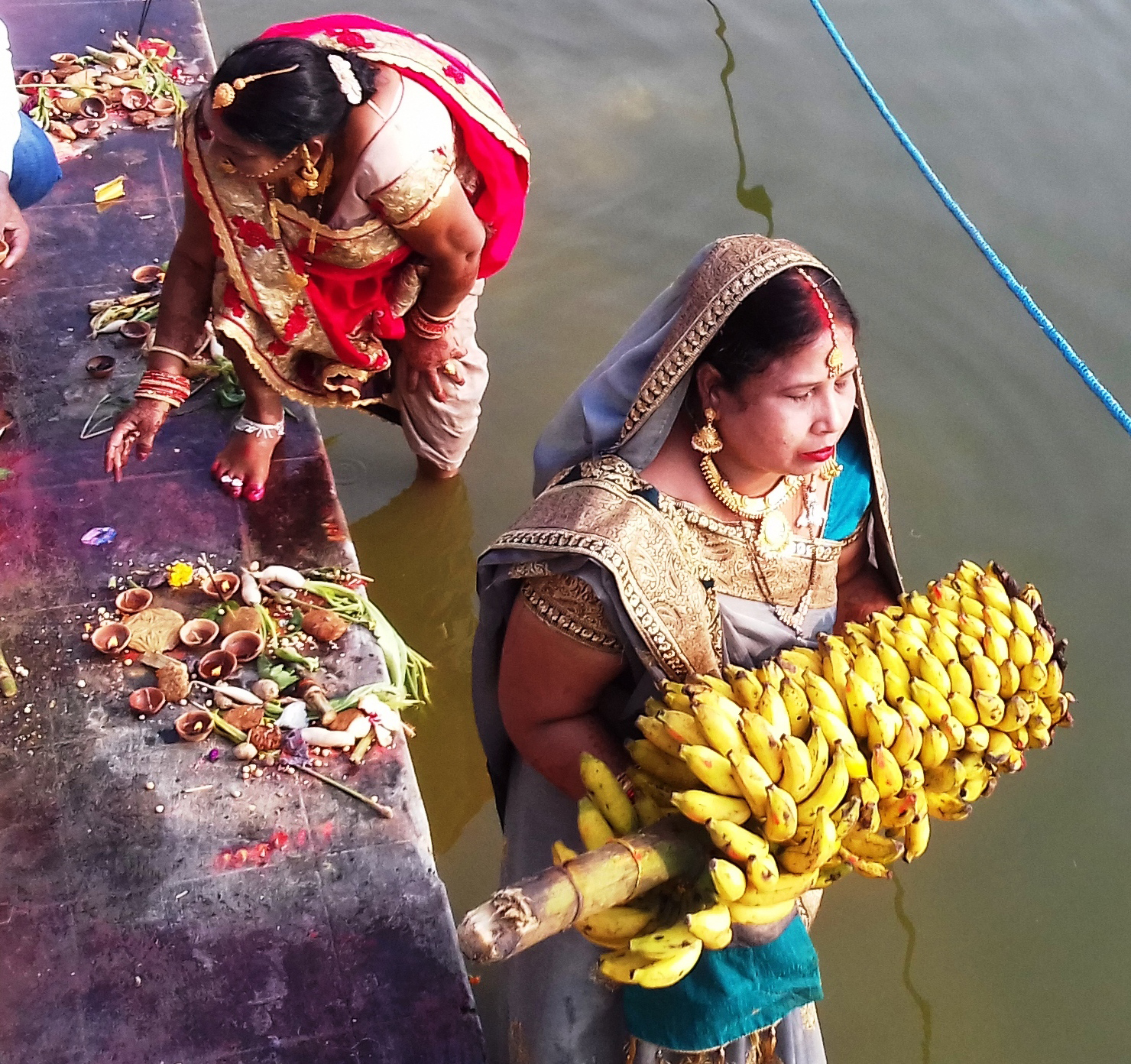
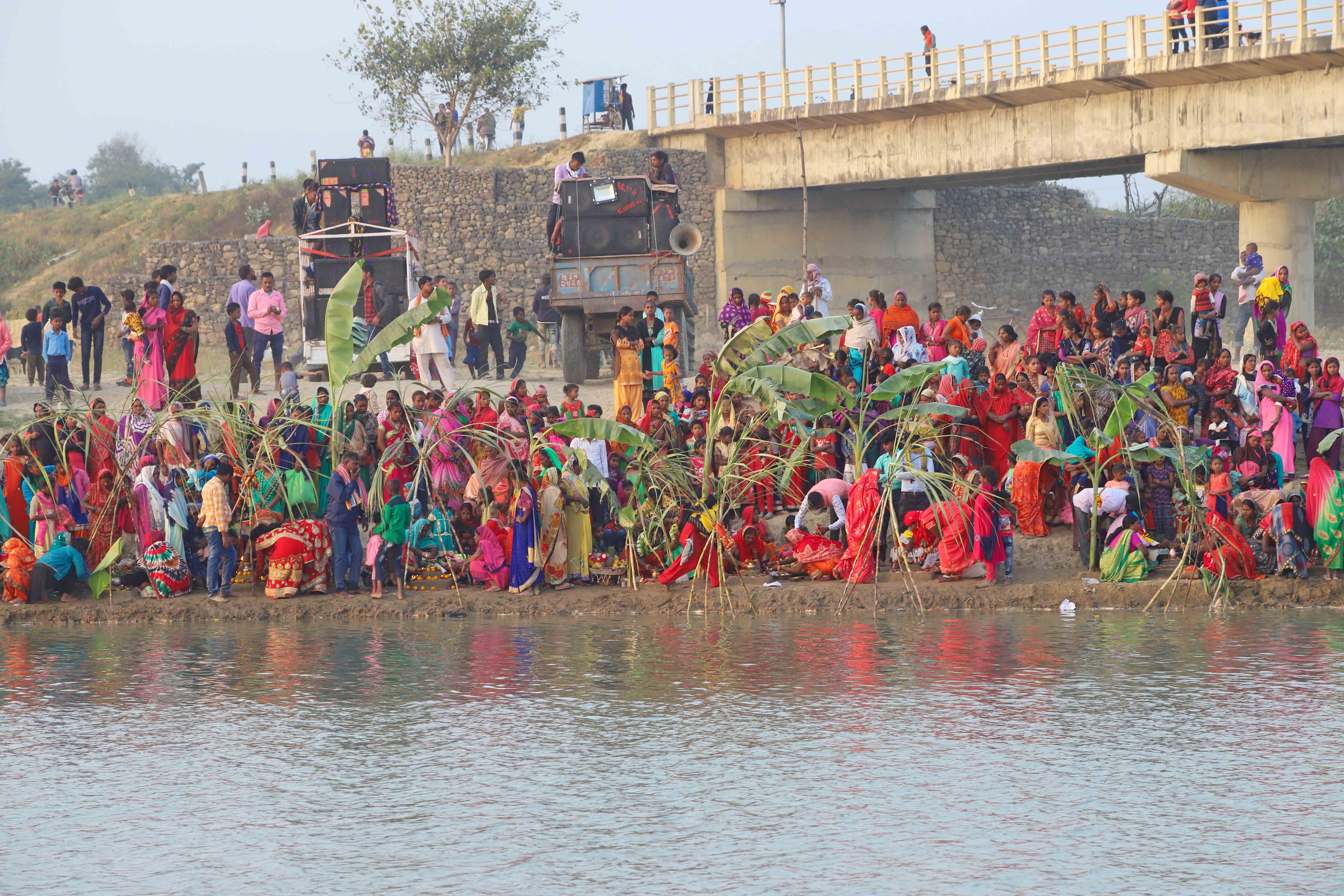
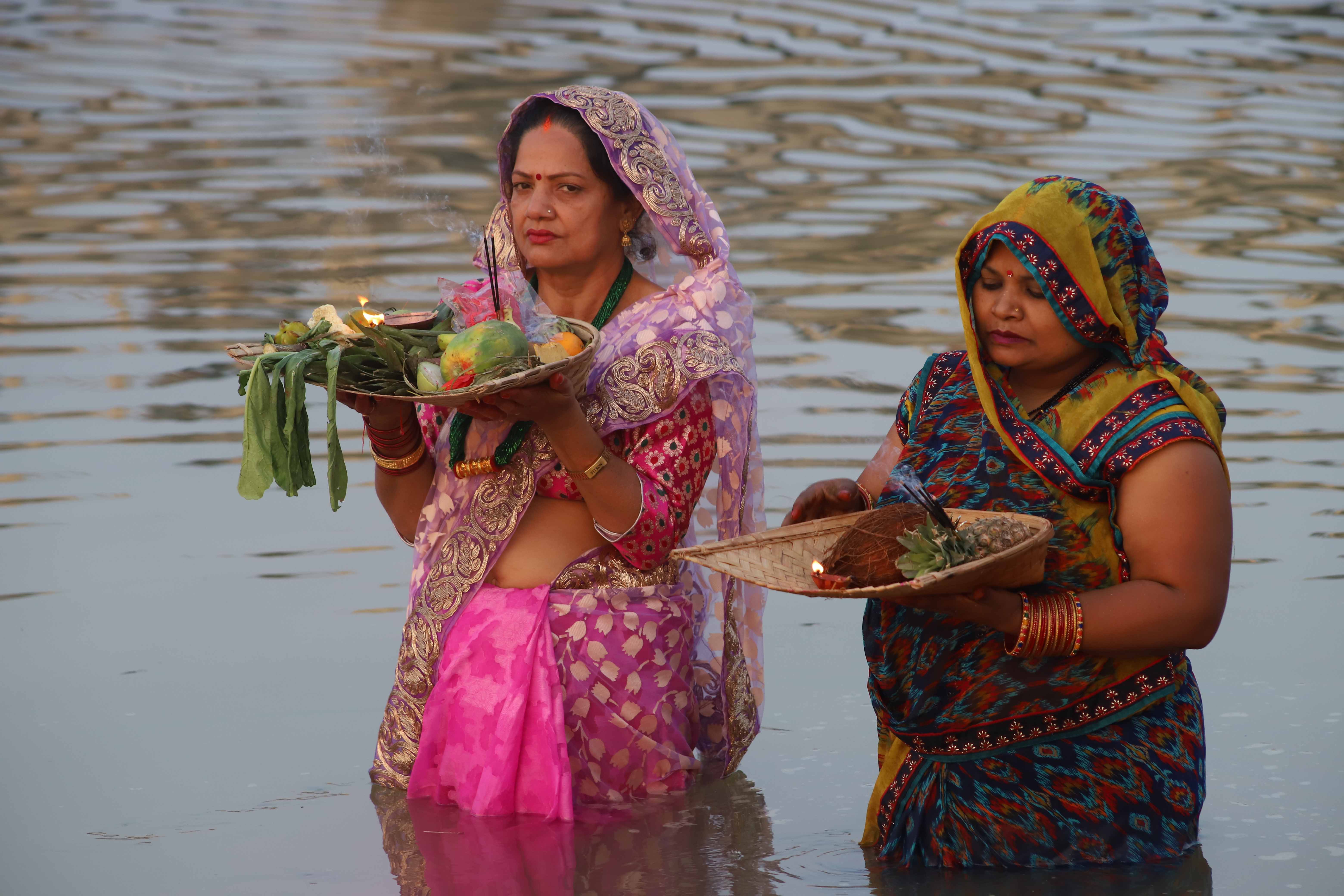
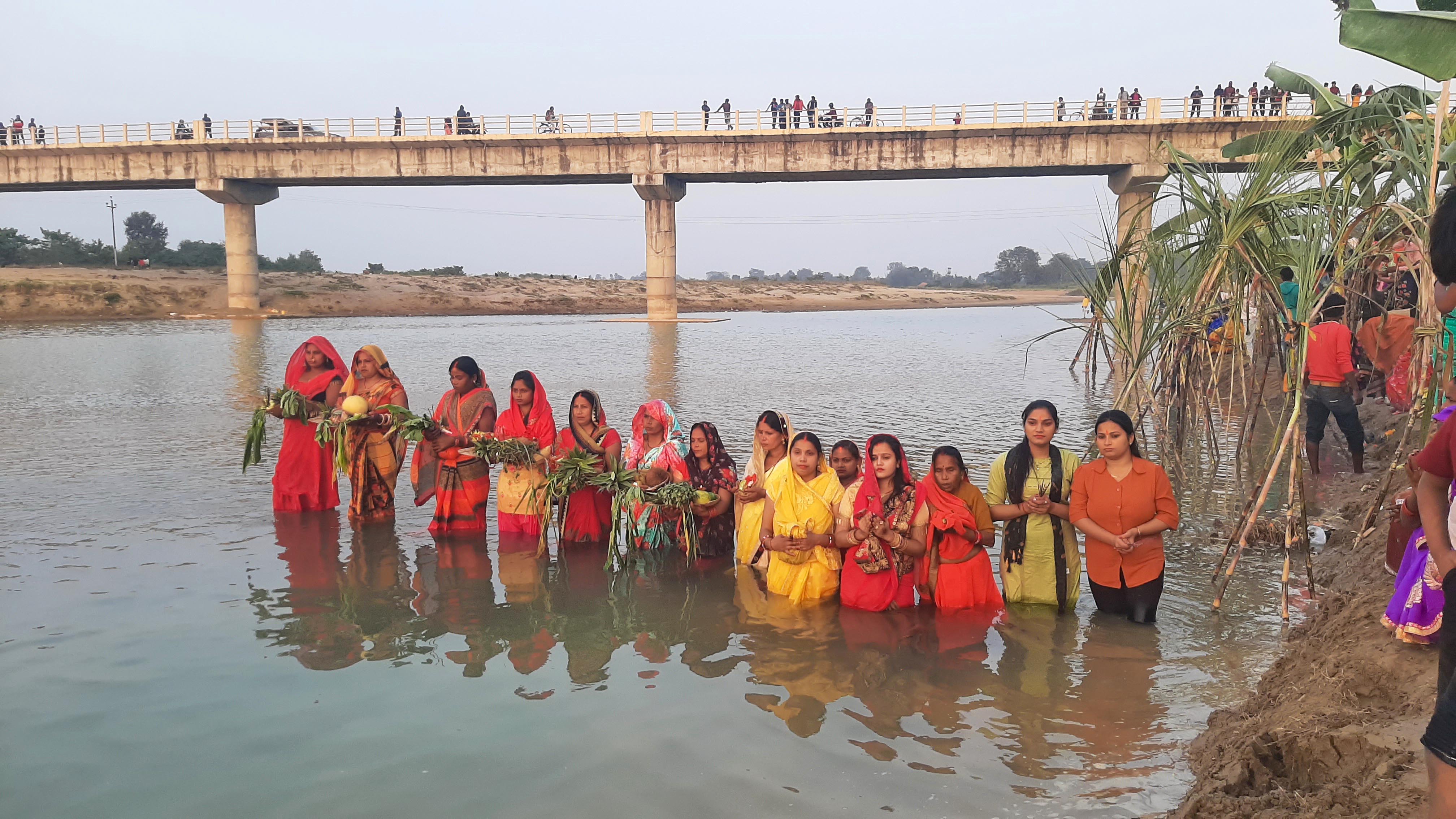
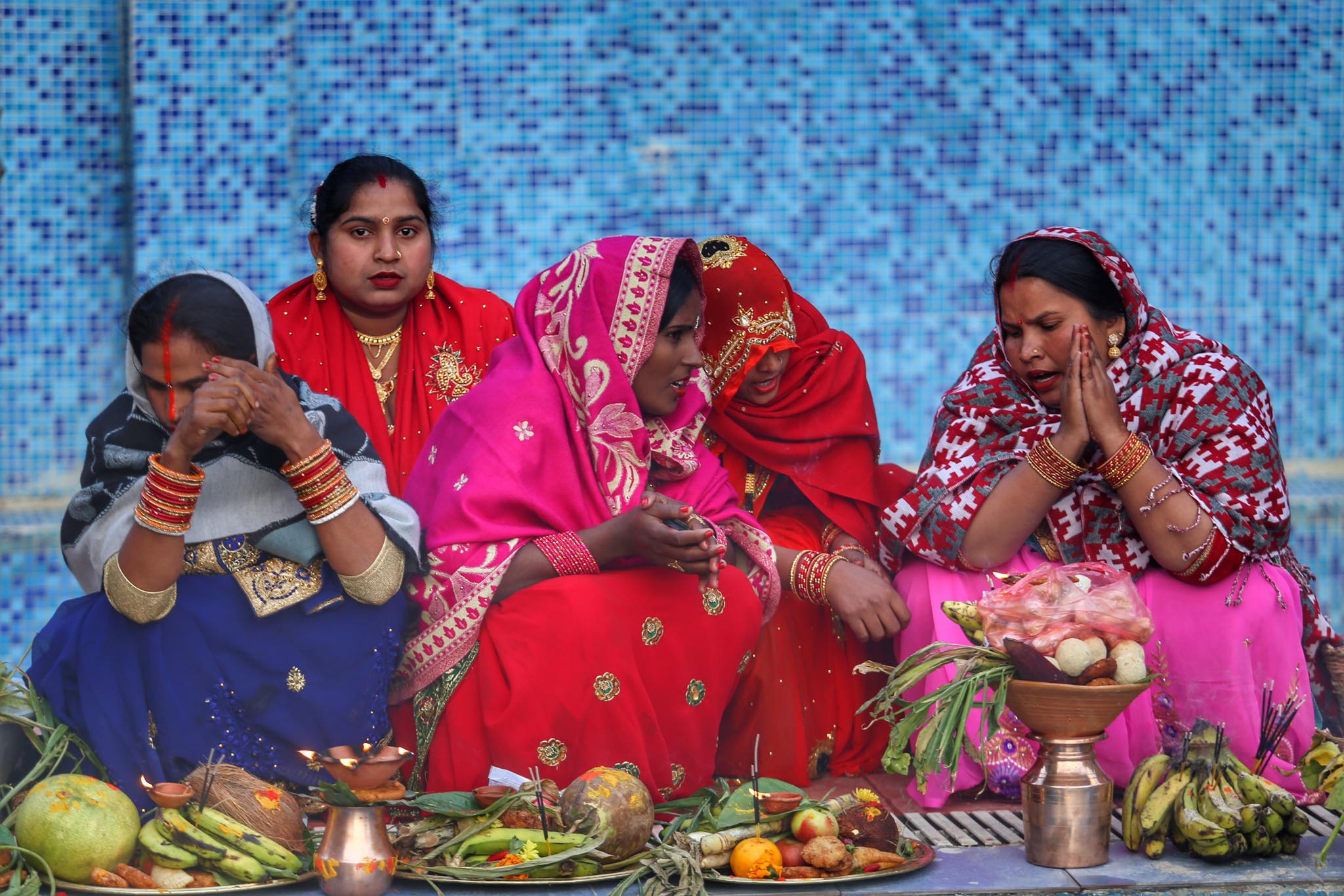
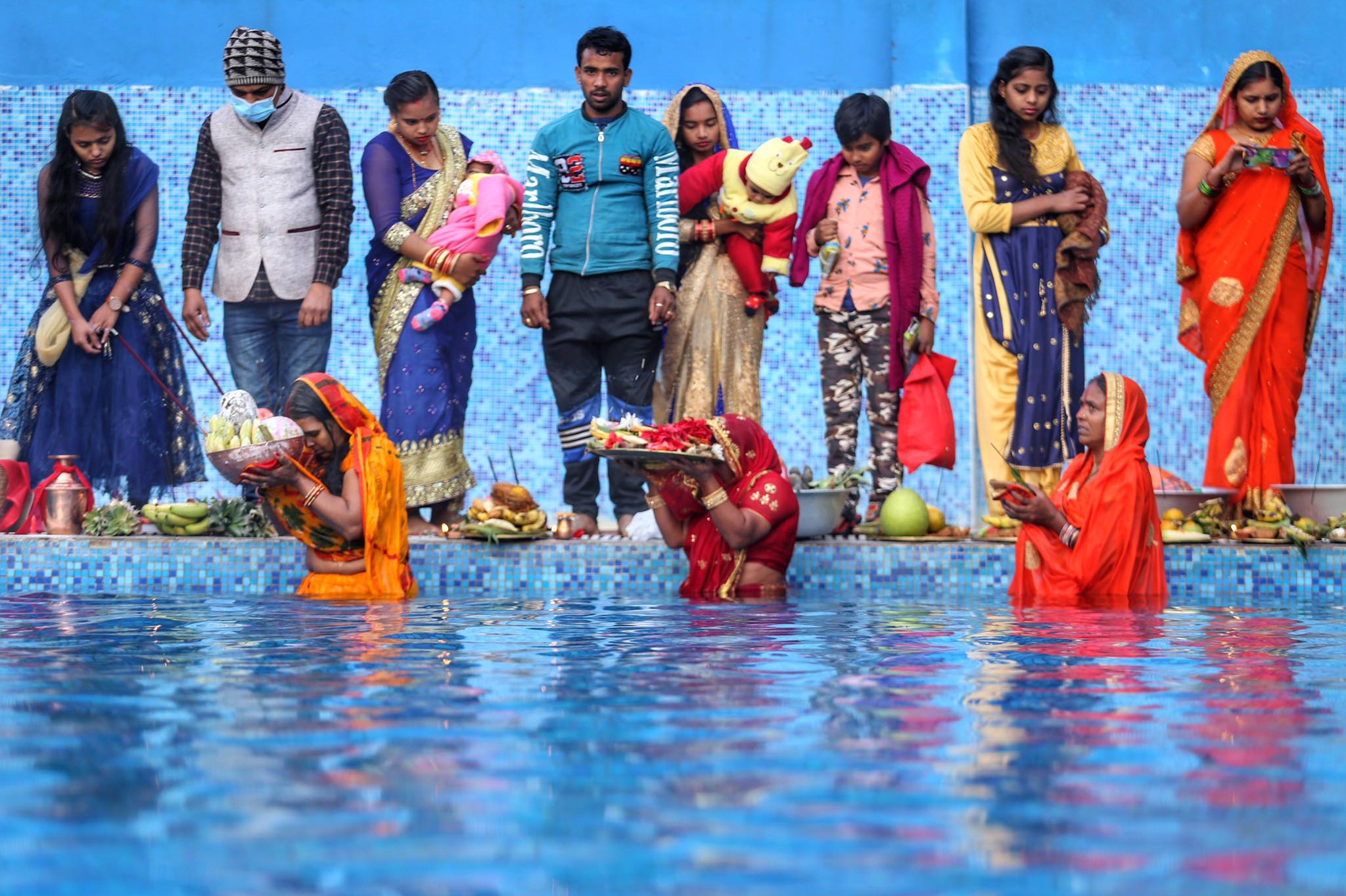
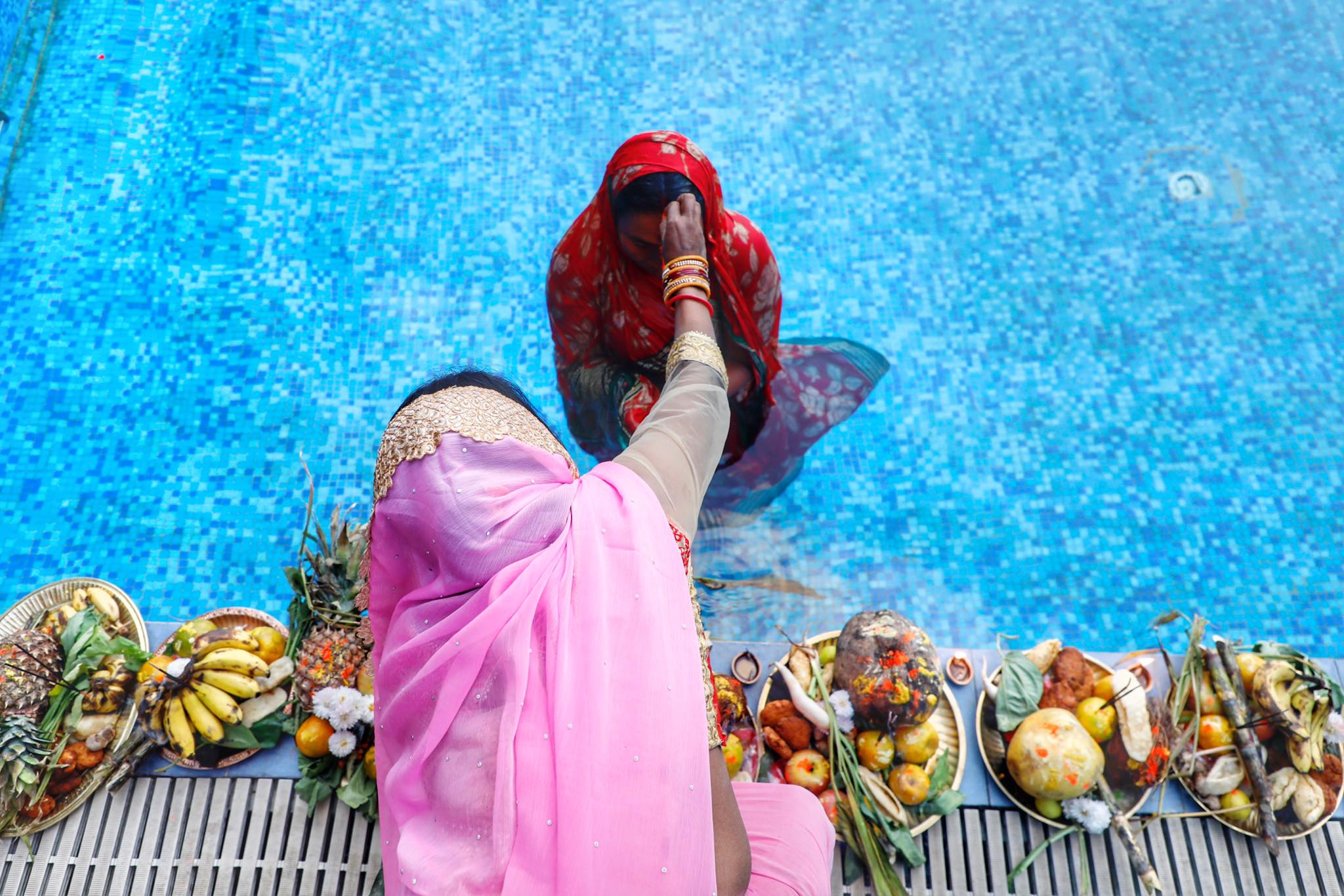
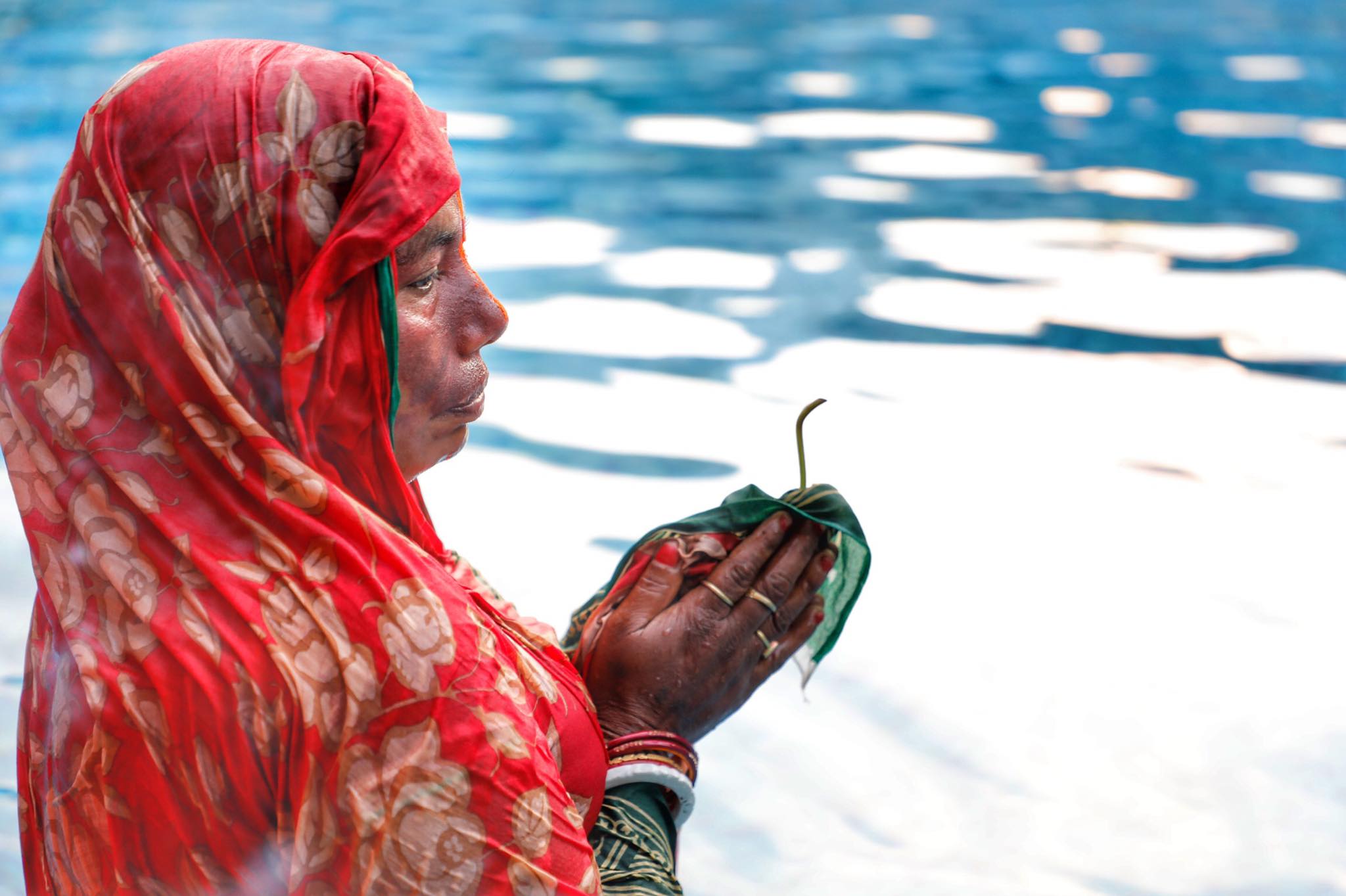
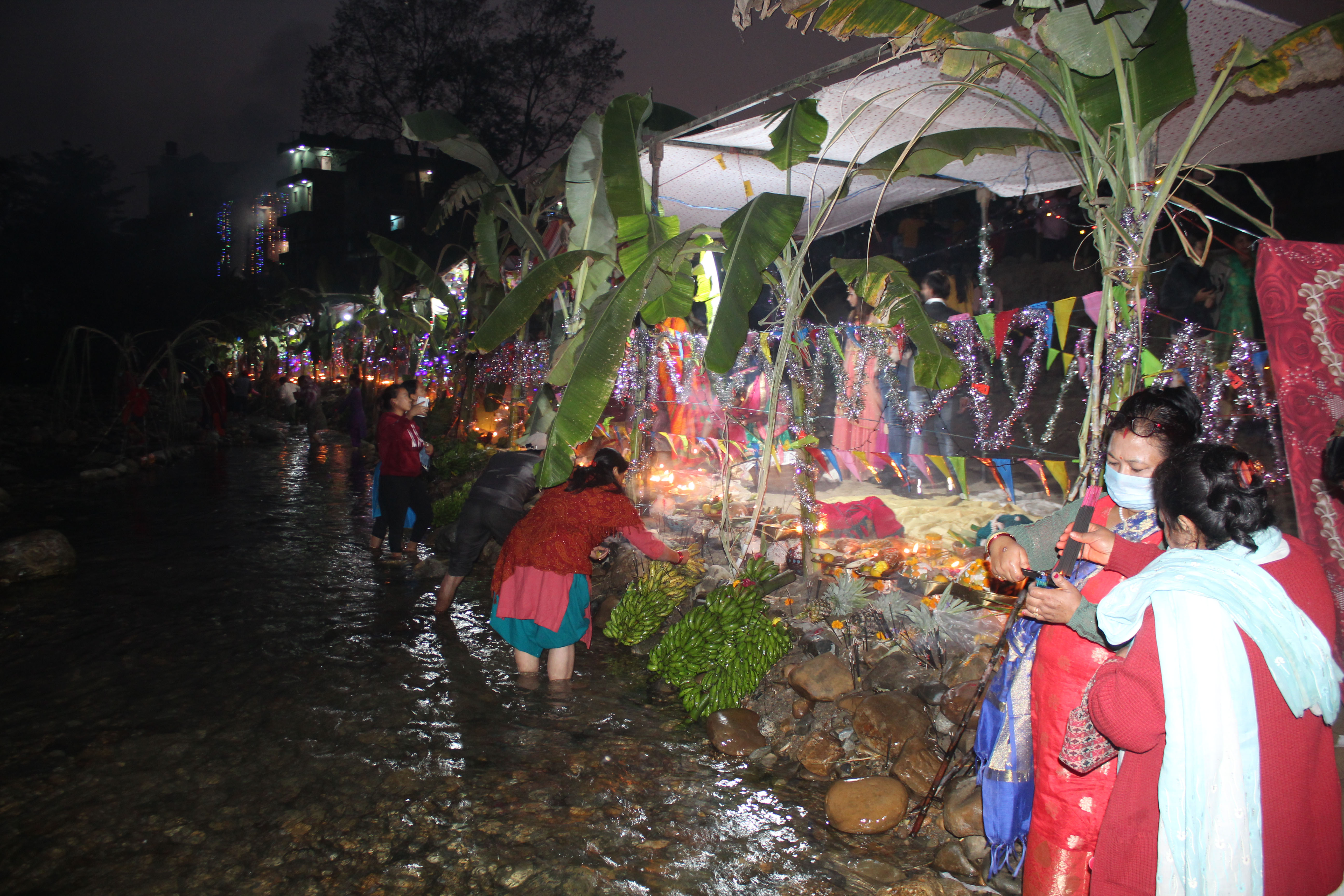




 9.51°C Kathmandu
9.51°C Kathmandu